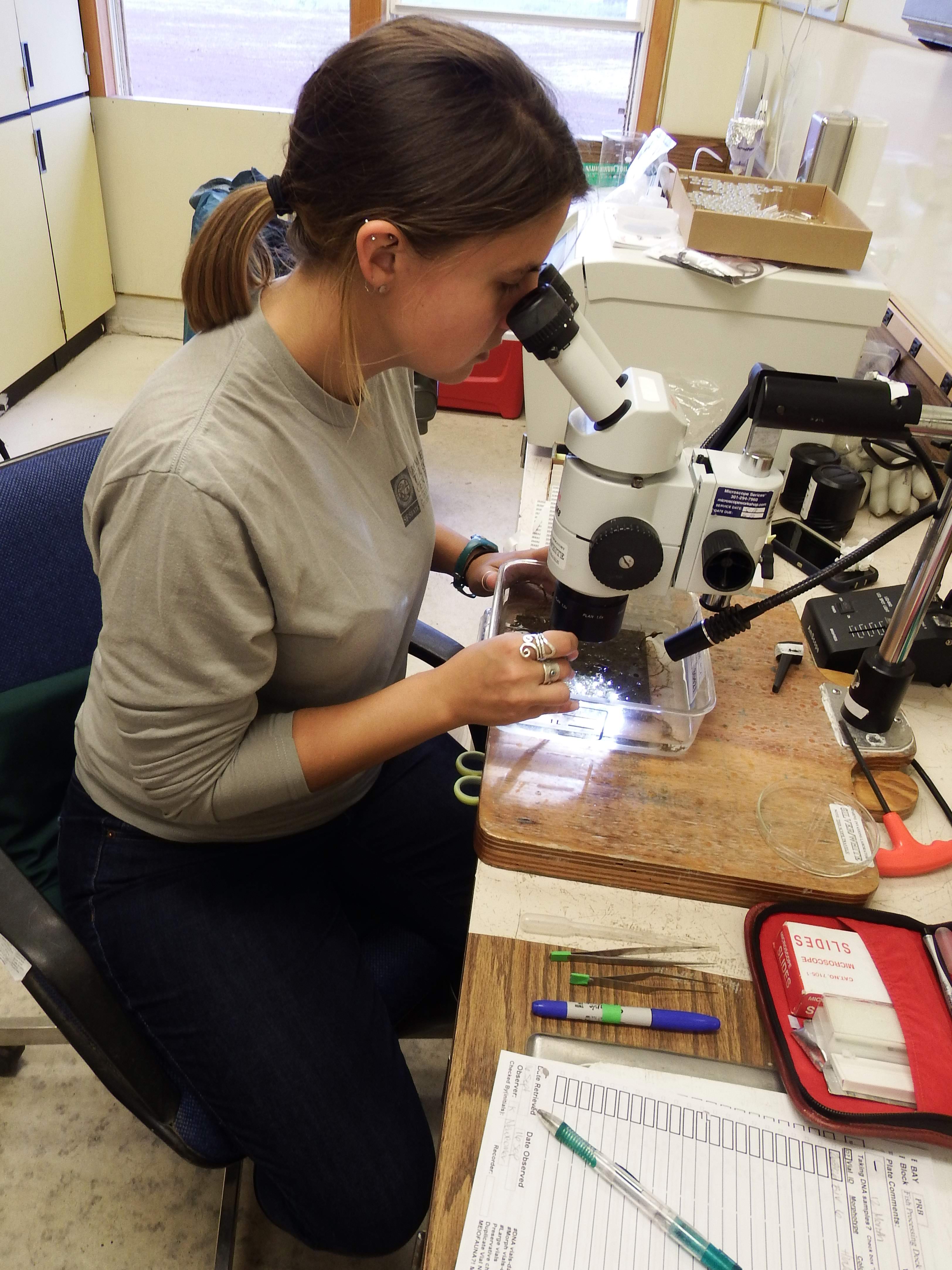Recent Headlines

Katy Newcomer awarded NSF Graduate Research Fellowship
Deep Dive for Big Results
Intuitively, we know everything matters, but sometimes the proverbial brightest and shiniest object gets the most attention. With a prestigious Graduate Research Fellowship from the National Science Foundation, incoming ESF graduate student Katy Newcomer is going to take this adage for a deep dive - literally - and shine the light on some lesser-known organisms.
Currently, Newcomer is an invasive species scientist with the Smithsonian Environmental Research Center. In her position, she looks for clues that will help to understand the patterns, processes, and consequences of invasions in aquatic ecosystems from local to global scales. Newcomer has been part of a team whose research encompasses a wide range of projects, exploring the ecology and management of coastal marine ecosystems. Scientists at the Smithsonian focus primarily on invasion dynamics, but also examine species interactions of both native and non-native species.
"I enjoy what I do," said Newcomer, who earned her undergraduate degree at Williams College in 2014 in environmental biology with honors in maritime studies. "Ironically, it's shown me another side of the story - and now I want to check out that side of the story. Right now, I look at problems after they've developed. With marine protected areas, there's the possibility of preventing issues before they start. With this fellowship, my research will look for opportunities to protect the ocean by stopping situations before they have a chance to start."
Newcomer chose to pursue her graduate research at ESF for several reasons, but topping the list are two professors.
"I am thrilled to be able to work with Joshua Drew and Rebecca Rundell," said Newcomer, of the professors from the College's Department of Environmental and Forest Biology. "Their work in the western Pacific is very interesting. I was also drawn to the equipment in the microscopy lab; it will help with my taxonomy work. Overall, though, the campus seems special: it's one of the only colleges and graduate programs in the country that is specifically focused on environmental science and management. I think that's really special, and everybody there is somehow interested in either working with the environment, protecting the environment or using the environment sustainably. That's not the truth at every college in the country."
The NSF Fellowship Program provides three years of funding over the life of the graduate program and allows the student to spend the funds when and how they're needed. While much research has been done on the bright and colorful coral reefs in Fiji, Newcomer will conduct surveys on other marine invertebrate animals in Fiji.
"These are the 'ugly ducklings,'" said Newcomer, who will use skills she's already honed to provide greater insights into the types of invertebrates living in coral reef ecosystems. "There is very little research to date, but a lot of research on the bright, colorful fish and coral species. I will be looking at the anemones and barnacles and crabs and the kinds of other animals that live among the coral reef and provide a lot of food and biogenic structure and habitat for other animals. And so they are an important part of the food web, but aren't studied as much as the more charismatic fish or coral."
The results of her research have implications for all of us.
"The ocean is a huge part of the planet," said Newcomer. "We need to understand it. It provides the oxygen we breathe. It provides food that we eat. It helps make our planet special."
Newcomer is one of four current or former ESF students who has been awarded this fellowship in the 2020 cycle. In recent years, approximately 12,000 people have applied for the fellowship and approximately 16 percent were successful.
Congratulations to ESF alums and current NSF Fellows: Kelly Ann Jaenecke, Amy Dunbar-Wallis, and Rachel Czerwinski as well as Sarah Dzielski, who won this prestigious award in 2018 and is currently doing research under Dr. Roxanne Razavi in the Department of Environmental and Forest Biology on effects of anthropogenic mercury pollution and land-use change on avian health and diversity.
"This award is a fantastic way for Katy to start her career at ESF," said Drew. "It provides her the flexibility to dive into her research, both literally and figuratively. Moreover for a school of ESF's size to have so many winners demonstrates how truly special a place ESF is."